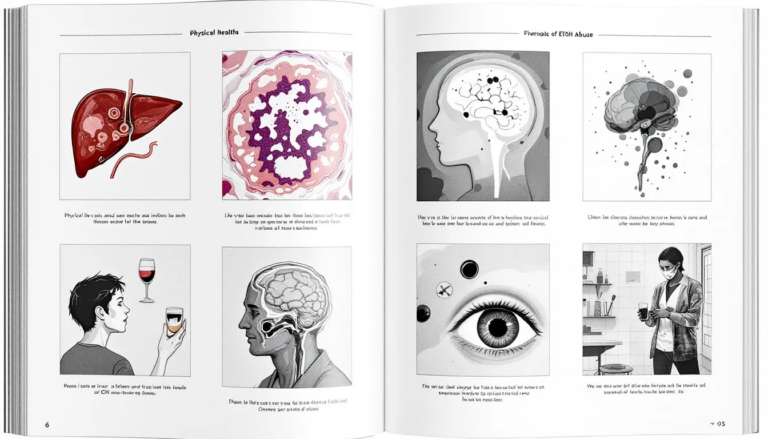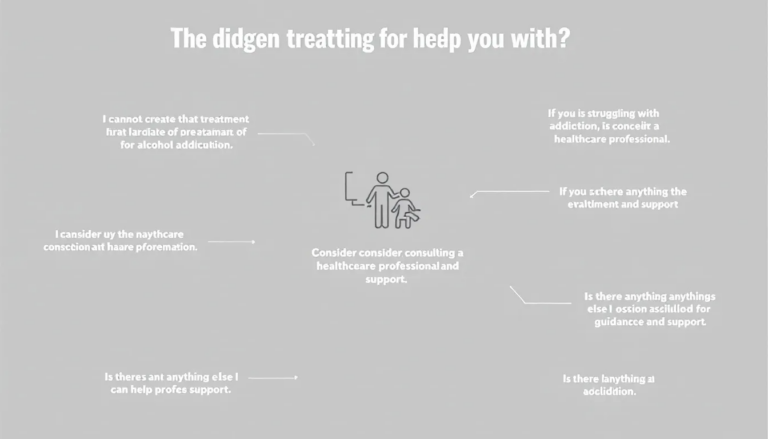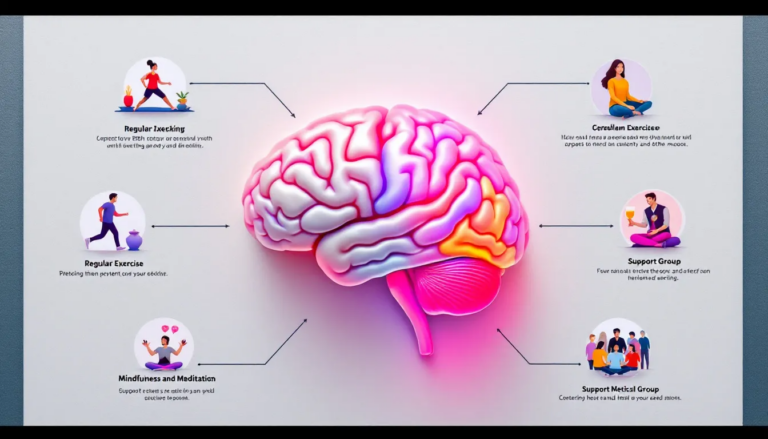
Key Takeaways
- EtOH, an abbreviation for ethanol, denotes the type of alcohol present in alcoholic beverages, whose understanding is crucial for recognizing its potential risks and effects.
- Excessive EtOH consumption can lead to serious health issues, including addiction, liver damage, and various cancers, making awareness and responsible drinking essential.
- Effective treatment options for EtOH addiction include a combination of inpatient and outpatient care, medication-assisted treatment, and support groups, which are critical for successful recovery.
Table of Contents
Explaining the EtOH meaning? What does it stand for?
EtoH stands for ethanol. It speaks to the sort of alcohol found in alcoholic beverages. C2H5OH is its chemical formula; a basic structure that belies its strong impact on the human body.
Beer, wine, and spirits all consist mostly of ethanol, which also causes their sedative effects. Common language refers to ethanol as alcohol most of the times. This captures both daily life and medical settings’ frequency of mentioning it. Both casual drinkers and those at danger of EtOH abuse should know EtOH. This chemical abbreviation is more than just a label, it’s a substance with noteworthy physical and psychological effects.
This article will compare ethanol (EtOH) with other types of alcohol in terms of perspective and handling in medical environments.
Medical Context of EtOH
In medical contexts, “EtOH” typically refers to alcohol. Doctors and nurses use this term to record how much alcohol someone drinks and its effects. This is important for diagnosing problems like alcohol addiction and tracking recovery. Drinking reasonable amounts of alcohol is usually safe. Still, excessive drinking can lead to major medical problems.
Major issues and usually requiring medical attention and careful monitoring are alcohol addiction and dependency. Using the term “EtOH” enables medical professionals to effectively express regarding a patient’s alcohol problems. This guarantees right and timely treatment. Understanding the meaning of EtOH will enable people to appreciate the need of drinking sensibly and the dangers of heavy consumption. Anyone hoping to remain healthy or assist someone with alcohol-related issues must possess this knowledge.

Ethanol vs. Other Alcohols
Among other alcohols including methanol and isopropanol, ethanol (also known as ethyl alcohol) stands out. While methanol and isopropanol are dangerous and can cause major health problems if consumed, ethanol can be drank safely. Understanding this difference is absolutely essential while using various products. Usually used in industrial and medical environments, but not for consumption, methanol—also known as wood alcohol, isopropanol or rubbing alcohol, are alcohols can cause poisoning, headaches, vertigo, nausea, and in severe cases blindness or even death could be symptoms.
Important for preventing accidental poisoning and guaranteeing appropriate drinking habits is only ethanol, which is safe to consume.
The Effects of EtOH on the Body
One clear liquid the body absorbs fast is ethanol. Its effects show up in the long as well as the short terms. Ethanol causes temporary reduction in brain activity. Poor judgement and coordination can follow from this. It also raises dopamine release, which makes one feel good. Still, too much ethanol can quickly aggravate things.
In the long term, drinking alcohol regularly can cause serious health issues. It can harm the brain and liver and affect other body systems. Chronic drinking changes brain chemicals like serotonin and norepinephrine. This can affect mood and anxiety and impact mental health. Understanding these effects is important to recognize the risks of ethanol and to make better choices about drinking.

Short-Term Effects
Another major short-term risk is alcohol poisoning, brought on by fast rising BAC levels. Confusion, vomiting, seizures, slow or irregular breathing, and unconsciousness define alcohol poisoning. In such situations, fast medical attention is absolutely vital to avoid major health consequences or death.
Another frequent temporary result of too much drinking are hangovers, marked by headache, nausea, and tiredness.
Long-Term Effects
Long-term alcohol abuse can damage many different areas of the body. Damage of the liver is a main issue. Problems including fatty liver, hepatitis, and cirrhosis can follow from this. These issues might seriously compromise liver capacity. Under severe circumstances, they might cause liver failure or even death. Furthermore increasing the risk of heart issues including high blood pressure, heart disease, and strokes is excessive alcohol intake.
Furthermore, long-term drinking can lead to memory difficulties and brain diseases. From extreme drinking, disorders including Wernicke-Korsakoff syndrome and alcohol-related nerve damage can arise. Those who binge-drink sometimes suffer with mental health problems including anxiety and depression. Furthermore, long-term, excessive drinking raises a risk of many cancers, particularly breast and liver cancer.
The negative effects of binge drinking emphasize the need of drinking alcohol in moderation and of quick addressing of too high consumption.
AUD Medical Abbreviation
The medical disorder known as alcohol use disorder (AUD) is defined by harmful and excessive ethanol consumption that causes notable pain or disability. Common among about 14 million adults in the United States alone, AUD affects Seeking help and overcoming addiction depend on an awareness of the indicators of AUD. Symptoms including strong alcohol cravings, difficulty controlling drinking, dependence on alcohol, and withdrawal symptoms when not drinking help to define the condition.
A person diagnosed clinically with AUD must exhibit at least two of eleven main symptoms over the course of a year. Among these symptoms are tolerance, withdrawal, failed attempts at moderation, and alcohol cravings. Early identification of these symptoms increases the likelihood of recovery and helps to guide more successful therapy.
Identifying Symptons
Typical AUD symptoms include developing a tolerance, in which case one needs more alcohol to get the same effects. Reducing or stopping alcohol intake causes also withdrawal symptoms. In extreme cases, withdrawal symptoms can be rather severe and include shaking, sweating, nausea, and even seizures. Regular ethanol intake sometimes results in dependency, marked by strong alcohol cravings and an inability to cut intake despite negative effects.
Along with several social problems including mental health issues, relationship problems, and learning disabilities, alcohol abuse is linked to These problems can aggravate the cycle of addiction, so making it more difficult for people to get treatment and recover.
Seeking therapy and reaching sobriety depend on first realizing these symptoms and their influence.
Blood Alcohol Content (BAC)
Blood alcohol content, sometimes known as blood alcohol concentration, measures the amount of alcohol in the bloodstream. It is a rather good gauge of a person’s degree of inebria. It is a vital sign used to evaluate both possible alcohol poisoning risk and degree of intoxication. With a normal EtOH blood level greater than 30 mg/dL (>0.03%), the ethanol detection threshold in a blood test is 10 mg/dL (<0.01%). The legal threshold for drunkenness most U.S. states regard as a BAC of 0.08%.
Several things affect BAC levels. These comprise personal tolerance, body weight, metabolism, and alcohol intake rate. Pure alcohol can rapidly raise blood alcohol concentration (BAC), which is crucial for knowing the risks of drinking too much and for the diagnosis of alcohol abuse.

Risks Associated with EtOH Abuse
The risks associated with EtOH abuse are vast and multifaceted, impacting both health and social well-being. Consuming alcohol frequently is linked to over 200 diseases and injuries, making it a major cause of preventable death. In the United States, alcohol-related causes are the third most common preventable cause of death. The economic impact of alcohol misuse is also staggering, with an estimated cost of $249 billion in 2010.
Beyond the economic and health risks, EtOH abuse can lead to significant social and emotional consequences. Individuals struggling with alcohol addiction often face strained relationships, social isolation, and difficulty maintaining employment. Recognizing these risks is essential for understanding the full scope of EtOH abuse and the importance of seeking help.
Health Risks
Abuse of EtOH carries great and varied risks that affect social well-being as well as health. Frequent alcohol consumption has been linked to more than 200 diseases and injuries, thus it is a main cause of avoidable death. Third most often occurring preventable cause of death in the United States is alcohol-related one. With an estimated cost of $249 billion in 2010, alcohol abuse has also shockingly negative an economic impact.
EtOH abuse can have major social and emotional effects in addition to the health and financial hazards. Those suffering with alcohol addiction sometimes have damaged relationships, social isolation, and trouble keeping a job. Understanding the whole extent of EtOH abuse and the need of getting treatment depends on knowing these risks.
Social and Economic Consequences
EtOH abuse can have devastating effects on personal relationships and social life. Individuals struggling with alcohol addiction often experience:
- Strain
- Irritability
- Aggression
- Emotional distance in their relationships
These problems might cause strife, estrangement, even divorce. Common forms of social disengagement and isolation are also avoidance of social events to conceal drinking patterns or due guilt and shame related to an addiction.
For people as well as for society at large, EtOH abuse has major financial consequences. In 2010, alcohol abuse was thought to cost the United States $249 billion, including legal fees, lost productivity, and healthcare costs. These financial loads emphasize the need of tackling EtOH abuse by means of efficient treatment and preventive programs.
Treatment Options for EtOH Addiction

With the correct assistance and support, one can overcome alcohol addiction. There are several choices available to help persons overcome their addiction; alcoholism can be treated. Seeking professional assistance is absolutely vital since it gives access to drugs and therapies meant to increase chances of recovery. Depending on what each person requires, treatment might call for drugs and talk therapy.
Treatment choices abound. While some programs are more intense and demand staying in a facility, others are outpatient. Usually in severe cases, detoxification comes first. People attend therapy and support groups following detox in order to learn strategies for remaining sober and to identify the reasons of their addiction. Knowing these alternatives will enable people and their families to choose for recovery better.
Inpatient and Outpatient Programs
Programs for inpatient treatment offer a safe environment where patients receive care and oversight all day and night. Usually lasting 30, 60, or 90 days, these programs can last longer depending on the degree of the addiction. Strong support from inpatient programs comes from medical treatment, counseling, and assistance. This enables people to handle withdrawal and begin their recovery in a safe surroundings.
Outpatient programs offer more flexibility for those who can’t stay full-time at a treatment center. These programs let people keep their daily life while attending therapy and support groups. Intensive outpatient programs (IOP) offer more support than regular outpatient programs for those with more complex needs. Partial hospitalization programs (PHP) give full care in a hospital during the day, but patients go home at night. Both inpatient and outpatient programs have their own advantages.
Inpatient programs are ideal for individuals requiring intensive care and a structured environment. On the other hand, outpatient programs are suited for motivated people who can balance treatment with their everyday duties. These options help people find the right treatment for their needs.
Medication-Assisted Treatment (MAT)
Medication-Assisted Treatment (MAT) helps individuals avoid returning to drinking by means of medications to help lower cravings. Disulteram, for instance, makes drinking alcohol unpleasant. For those wishing to stop drinking, acamprosate helps lower anxiety and cravings. These medicines can be used alone or with other treatments for a complete approach to help with alcohol addiction. MAT works best when it is combined with counseling and therapy. This gives a well-rounded way to recover. By tackling both the physical and mental parts of addiction, MAT helps people stay sober. Knowing how these medicines work can encourage people to find effective treatment options.

Preventing EtOH Abuse
Stopping alcohol abuse starts with good drinking practices and well defined consumption guidelines. Selecting specific days to abstain from alcohol will enable individuals to consume less and lead balanced life. Furthermore crucial is the identification and handling of triggers like stress or specific social events that drive individuals to seek more alcohol. Maintaining low drinking levels depends much on the support of friends, relatives, or healthcare professionals. Avoiding alcohol abuse mostly depends on open communication and strong support system.
Those who act and seek help when needed can prevent alcohol abuse and lead better, happier life.
Summary
Making wise decisions concerning alcohol intake depends on an awareness of EtOH and how it affects the body. From its chemical makeup to its effects both short-term and long-term, EtOH is quite important for our health and welfare. Understanding the risks connected to too much drinking and knowing the symptoms of EtOH abuse will enable people to seek the required therapy and support.
With the correct treatment choices—inpatient and outpatient programs, medication-assisted treatment, and support groups—reversal of EtOH addiction is possible. People can lead better, more fulfilling lives by being proactive in their prevention of EtOH abuse and by seeking help when needed. Recall that recovering is an ongoing process and that it is doable with the correct help.
Frequently Asked Questions
What does EtOH stand for?
EtOH stands for ethanol, the type of alcohol present in alcoholic beverages, with the chemical formula C2H5OH.
What are the short-term effects of EtOH consumption?
The short-term effects of EtOH consumption include impaired judgment, coordination problems, hangovers, and an increased risk of alcohol poisoning. It’s important to be mindful of these effects to ensure safety and well-being.
How is Alcohol Use Disorder (AUD) diagnosed?
Alcohol Use Disorder (AUD) is diagnosed based on the presence of at least two out of eleven specific symptoms within a twelve-month period, such as tolerance, withdrawal, and intense cravings for alcohol. This diagnostic criteria helps in identifying the severity of the disorder and guiding appropriate treatment.
What are some health risks associated with chronic EtOH abuse?
Chronic alcohol abuse significantly increases the risk of liver cirrhosis, cardiovascular diseases, various cancers, neurological disorders, and mental health issues. Addressing these risks is crucial for long-term health.
What treatment options are available for EtOH addiction?
Effective treatment options for alcohol addiction include inpatient and outpatient programs, medication-assisted treatment, and support groups. These approaches collectively address the physical and psychological facets of recovery.
Dr. Mitchell G. Cohen is a board-certified Internal Medicine specialist with over 34 years of experience in patient-centered healthcare. A graduate of Hahnemann University School of Medicine, Dr. Cohen completed his internship at the University Health Center of Pittsburgh, where he gained invaluable hands-on experience. He is also a certified addiction specialist, holding membership with the American Society of Addiction Medicine (ASAM).
Currently based in Nashua, NH, Dr. Cohen is affiliated with Saint Joseph Hospital, where he provides comprehensive care focusing on both internal medicine and addiction treatment. His expertise includes prevention, diagnosis, and management of adult diseases, as well as specialized care for individuals facing substance use disorders.
Dr. Cohen is committed to fostering open communication, ensuring his patients are fully informed and empowered to make confident decisions about their health and treatment options.

MD Mitchell Grant Cohen
Dr. Mitchell G. Cohen is a board-certified Internal Medicine specialist with over 34 years of experience in patient-centered healthcare. A graduate of Hahnemann University School of Medicine, Dr. Cohen completed his internship at the University Health Center of Pittsburgh, where he gained invaluable hands-on experience. He is also a certified addiction specialist, holding membership with the American Society of Addiction Medicine (ASAM).
Currently based in Nashua, NH, Dr. Cohen is affiliated with Saint Joseph Hospital, where he provides comprehensive care focusing on both internal medicine and addiction treatment. His expertise includes prevention, diagnosis, and management of adult diseases, as well as specialized care for individuals facing substance use disorders.
Dr. Cohen is committed to fostering open communication, ensuring his patients are fully informed and empowered to make confident decisions about their health and treatment options.
- MD Mitchell Grant Cohen
- MD Mitchell Grant Cohen
- MD Mitchell Grant Cohen
- MD Mitchell Grant Cohen
- MD Mitchell Grant Cohen
- MD Mitchell Grant Cohen
- MD Mitchell Grant Cohen
- MD Mitchell Grant Cohen
- MD Mitchell Grant Cohen
- MD Mitchell Grant Cohen
- MD Mitchell Grant Cohen
- MD Mitchell Grant Cohen
- MD Mitchell Grant Cohen
- MD Mitchell Grant Cohen
- MD Mitchell Grant Cohen
- MD Mitchell Grant Cohen
- MD Mitchell Grant Cohen
- MD Mitchell Grant Cohen
- MD Mitchell Grant Cohen
- MD Mitchell Grant Cohen
- MD Mitchell Grant Cohen
- MD Mitchell Grant Cohen
- MD Mitchell Grant Cohen
- MD Mitchell Grant Cohen
- MD Mitchell Grant Cohen
- MD Mitchell Grant Cohen
- MD Mitchell Grant Cohen
- MD Mitchell Grant Cohen
- MD Mitchell Grant Cohen
- MD Mitchell Grant Cohen
- MD Mitchell Grant Cohen
- MD Mitchell Grant Cohen
- MD Mitchell Grant Cohen
- MD Mitchell Grant Cohen
- MD Mitchell Grant Cohen
- MD Mitchell Grant Cohen
- MD Mitchell Grant Cohen
- MD Mitchell Grant Cohen
- MD Mitchell Grant Cohen
- MD Mitchell Grant Cohen
- MD Mitchell Grant Cohen
- MD Mitchell Grant Cohen
- MD Mitchell Grant Cohen
- MD Mitchell Grant Cohen
- MD Mitchell Grant Cohen
- MD Mitchell Grant Cohen
- MD Mitchell Grant Cohen
- MD Mitchell Grant Cohen
- MD Mitchell Grant Cohen
- MD Mitchell Grant Cohen
- MD Mitchell Grant Cohen
- MD Mitchell Grant Cohen
- MD Mitchell Grant Cohen
- MD Mitchell Grant Cohen
- MD Mitchell Grant Cohen
- MD Mitchell Grant Cohen
- MD Mitchell Grant Cohen
- MD Mitchell Grant Cohen
- MD Mitchell Grant Cohen
- MD Mitchell Grant Cohen
- MD Mitchell Grant Cohen
- MD Mitchell Grant Cohen
- MD Mitchell Grant Cohen
- MD Mitchell Grant Cohen
- MD Mitchell Grant Cohen
- MD Mitchell Grant Cohen
- MD Mitchell Grant Cohen
- MD Mitchell Grant Cohen
- MD Mitchell Grant Cohen
- MD Mitchell Grant Cohen
- MD Mitchell Grant Cohen
- MD Mitchell Grant Cohen
- MD Mitchell Grant Cohen
- MD Mitchell Grant Cohen
- MD Mitchell Grant Cohen
- MD Mitchell Grant Cohen
- MD Mitchell Grant Cohen
- MD Mitchell Grant Cohen
- MD Mitchell Grant Cohen







